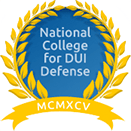Charged with Criminal Mischief in New Jersey?
You may have believed the  property was abandoned, no one cared, or just have acted impulsively in causing damage, but vandalism is a criminal offense termed criminal mischief in New Jersey. If you have been arrested or charged with criminal mischief, an experienced criminal attorney from the Law Offices of Jonathan F. Marshall has the skill to insure that your felony or misdemeanor (e.g. disorderly person offense) does not mushroom into a life changing event. Our attorneys have over 60 years of combined experience, have served as both county and municipal prosecutors in almost 30 jurisdictions in NJ, and possess the know-how to make sure you avoid a conviction for criminal mischief. In fact, our attorneys are almost always successful in reducing or eliminating these charges and represent individuals throughout the state including Middlesex County, Ocean County, Monmouth County, Union County, Hudson County, Morris County, Essex County, Mercer County, Bergen County, and Somerset County. If you have any further questions or concerns just call our office to speak to one of our knowledgeable lawyers at no cost.
property was abandoned, no one cared, or just have acted impulsively in causing damage, but vandalism is a criminal offense termed criminal mischief in New Jersey. If you have been arrested or charged with criminal mischief, an experienced criminal attorney from the Law Offices of Jonathan F. Marshall has the skill to insure that your felony or misdemeanor (e.g. disorderly person offense) does not mushroom into a life changing event. Our attorneys have over 60 years of combined experience, have served as both county and municipal prosecutors in almost 30 jurisdictions in NJ, and possess the know-how to make sure you avoid a conviction for criminal mischief. In fact, our attorneys are almost always successful in reducing or eliminating these charges and represent individuals throughout the state including Middlesex County, Ocean County, Monmouth County, Union County, Hudson County, Morris County, Essex County, Mercer County, Bergen County, and Somerset County. If you have any further questions or concerns just call our office to speak to one of our knowledgeable lawyers at no cost.
NJ Criminal Mischief Law – N.J.S.A. 2C:17-3
 N.J.S.A. 2C:17-3 provides that “a person is guilty of criminal mischief if he: (1) Purposely or knowingly damages tangible property of another or damages tangible property of another recklessly or negligently in the employment of fire, explosives or other dangerous means listed in subsection a. of N.J.S.2C:17-2; or (2) Purposely, knowingly or recklessly tampers with tangible property of another so as to endanger person or property, including the damaging or destroying of a rental premises by a tenant in retaliation for institution of eviction proceedings.” The full content of the New Jersey criminal mischief law is contained at N.J.S.A. 2C:17-3.
N.J.S.A. 2C:17-3 provides that “a person is guilty of criminal mischief if he: (1) Purposely or knowingly damages tangible property of another or damages tangible property of another recklessly or negligently in the employment of fire, explosives or other dangerous means listed in subsection a. of N.J.S.2C:17-2; or (2) Purposely, knowingly or recklessly tampers with tangible property of another so as to endanger person or property, including the damaging or destroying of a rental premises by a tenant in retaliation for institution of eviction proceedings.” The full content of the New Jersey criminal mischief law is contained at N.J.S.A. 2C:17-3.
A wide range of conduct involving damage or interference with property of another constitutes “criminal mischief” under New Jersey law. Common examples of criminal mischief are breaking someone’s window, kicking in a door, maliciously causing damage to a rental property or the like. It should be emphasized that criminal liability under this law is not limited to damage or interference that is intentional, but may also include reckless or negligent conduct under certain circumstances (e.g. fire, explosives or other dangerous instrumentalities). Additionally, where the charge involves “tampering,” a risk of harm to property as opposed to actual physical harm (e.g. interference) is all that is required.
Where juvenile criminal mischief is committed, a parent or guardian may be held liable for the related damage under certain circumstances under a separate law – N.J.S.A. 2A:53A-15. The act alone by a minor of damaging property will not, however, suffice in triggering liability on the part of an adult as it must be shown that the parent or other person acting as guardian had legal custody of the child and failed to exercise reasonable supervision or control.
Penalties for Criminal Mischief & Grading of Offense
A charge of criminal mischief may be a second-degree, third-degree, fourth-degree or even a disorderly persons offense. The grade of the charge depends entirely on the type of the property and the amount of damage involved. The accused can be required to bear the burden of establishing value in this regard in accordance with State v. Tonnisen In any case, criminal mischief is a disorderly persons offense where the damage involved is less than $500. Where the damages are between $500 and $2,000 or if gas, oil, water pipes, or telephone wires are destroyed or tampered with, a fourth-degree charge applies. Criminal mischief is upgraded to a third-degree crime if the damage is $2,000 or more. In rare instances, criminal mischief can escalate to a second-degree crime when it involves the impairment of public service and this interruption causes death. If the vandalism involves graffiti, the court will not only impose the appropriate penalties associated with the particular grade of offense and require restitution, but will also require at least 20 days of community service.
A conviction for criminal mischief can have serious ramifications including a criminal record, community service, thousands of dollars in restitution, and possible incarceration. However, our attorneys possess the skill, knowledge and resources to insure that our clients avoid significant negative consequences from these charges. One of our attorneys is available now to discuss how we can help you in defending your case in Monmouth County, Ocean County, Essex County, Union County, Middlesex County, Mercer County, Hudson County or Morris County. Call us toll free at 855-450-8310 to speak to a knowledgeable criminal defense lawyer who can answer all of your questions and address your concerns.











